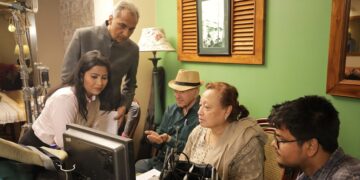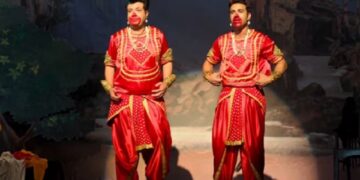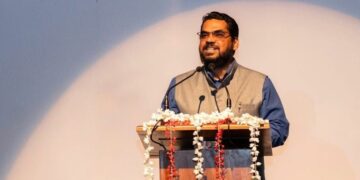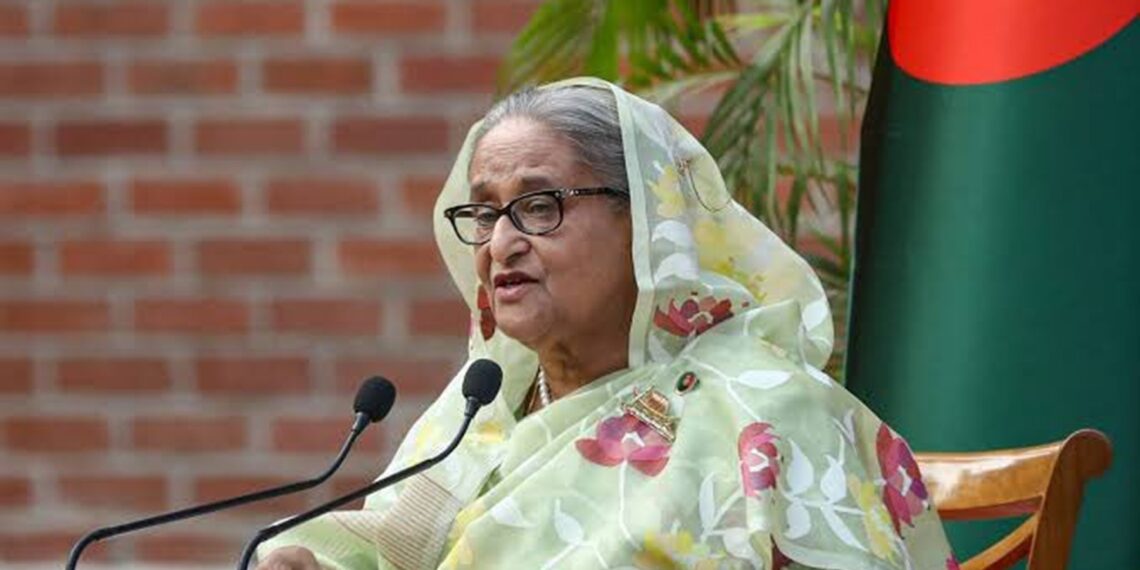Three key ministers in the erstwhile Sheikh Hasina government were effectively subverted by the American ‘deep state’ and guided in particular ways to act against the interests of the Awami League regime in the weeks and months before August 5, 2024.
An ongoing thorough evaluation and assessment of why the Hasina government and the Awami League failed in preventing the massive students’ protest in July-August 2024 uncovers the shadowy roles played by Private Investment and Industry Adviser to the them prime minister, Salman F Rahman, Law Minister Anisul Haq and Minister of State for Information Mohammad Arafat to advance the aims and objectives of the US ‘deep state’.
Rahman and Haq were together arrested under mysterious circumstances from Dhaka’s Sadarghat area on the night of August 13, 2024.
There is little or no information related to Arafat’s whereabouts even as a cross-section of Bangladesh’s former and current officialdom, including security agencies, suspect that he may have used his contacts in the western world to flee abroad.
Speaking with Northeast News on the condition of anonymity, Awami League sources who were familiar with the last weeks of the Hasina regime said that Rahman, Haq and Arafat acted in ways that “harmed the interests” of the government in general and the then prime minister in particular.
This was corroborated by a former senior minister in Sheikh Hasina’s cabinet, who was familiar with Salman F Rahman aka ‘Darbesh’s’ meetings with American officials in the US.
This former minister said that Darbesh effectively “shut us out” from approaching Sheikh Hasina on government business.
“They were found to be in direct touch with serving and retired US State Department officials not only in Bangladesh but also abroad since at least 2023, if not earlier,” an Awami League functionary close to the ousted Hasina said.
What is significant is that while Hasina never suspected the three of “betraying” her and the regime, she is now familiar with the precise roles played by the trio.
While some Awami League sources said they suspected the US deep state’s regime change operations began as far back as 2018, after the “questionable” election that brought Hasina back to power, other party sources said that the ball was set rolling in April-May 2023 when overt noises over “free and fair” elections were begun to be made by the State Department and its representative in Dhaka, the then Ambassador Peter D Haas, followed by Assistant Secretary of State for South and Central Asia Donald Lu.
In this context, a June 2, 2022, intelligence report by an Indian central agency is revealing. It said, “US ambassador Peter Haas, who is constantly reminding BD (Bangladesh) of the need for restoring democracy, is part of the broader plan to bring down Hasina’s Government”.
By September end, 2023, when she made her last official visit to the United States, Hasina had realised that the American ‘deep state’ intended to unseat her from power.
“In a closed-door meeting with some close party functionaries, she placed six vexed issues that her government was confronted with as a consequence of US pressure.
“These included a proposal for Bangladesh to join the Quad, signing the GESOMIA and ACSA deals, allowing American companies to explore and exploit 26 oil and gas-rich areas and the broader issue of Myanmar as envisaged by the US under its Burma Act,” a party functionary said, adding, “Her chin rested on her hands. She appeared perturbed and worried. She could see the threat to her government”.
Hasina, these Awami Leagues functionaries said, was not prepared to give in to the pressures from the US. The sources said that she did not want to give away all the 26 oil and gas fields to US companies and was interested in “dividing these up among two to three multinational firms”.
Meanwhile, Salman F Rahman aka ‘Darbesh’, who had squirmed his way up the Awami League hierarchy and had placed himself in No. 2 position – effectively the deputy prime minister – maintained a hawk eye on Hasina, taking note of who she spoke with or met. During the Washington DC-leg of Hasina’s two-nation (Japan and US) visit in April-May 2023, the then prime minister was booked to stay at the Ritz Carlton Hotel. Instead of taking up a room at this hotel, Darbesh chose to check in to St Regis Hotel.
“The drive between St Regis Hotel and Ritz Carlton would take between 20-30 minutes,” said this source. There was to be a meeting to work out the details of launching a new media platform to counter the “propaganda” launched by some Bangladeshi media, including newspapers and online portals.
“Besides Darbesh, Mohammad Arafat was to be there too for the meeting that would finalise the details of the proposed media platform. Just as I was about to enter the meeting, I saw Marcia Bernicat (who was Ambassador to Bangladesh between 2015 and 2018) leave a room in which Darbesh was ensconced,” the source said.
“When I asked Darbesh two questions related to this meeting with Bernicat, his response was evasive. First, he said this was a separate meeting. Secondly, Darbesh said he did not want his guest seen among others,” the source said, adding, “the previous evening, there was a meeting between Bangladesh’s Ambassador to the US Mohammad Imran and Hasina. The PM’s son Sajib Wazed Joy was also in the meeting”.
There were at least six Americans, including William Milam, the then Deputy Assistant Secretary of State Afrin Akter, a foreign policy analyst and South Asia specialist and Bernicat who were in regular touch with Darbesh, the source said.
Bernicat and two other US State Department officials were sacked by the Donald Trump administration in the second half of January 2025. At that time, Bernicat held the post of Director-General of the US Foreign Service and Director of global talent leading the recruitment, assignment and career development of the State Department’s workforce.
“What stunned me was that later, after the Bangladeshi delegation returned to Dhaka, Darbesh conveyed through Arafat that the new media platform project was no longer required”, the source said, lamenting the “hard work that had gone into preparing a feasibility study and other steps toward that direction”.
Darbesh’s last visit to the US was in October-end 2023, when she had a meeting with US Under Secretary for Civilian Security, Democracy and Human Rights Uzra Zeya.
In December 2024, an Awami League functionary in New York was told by the chief of staff of US Representative From New York (D) and Ranking Member of the House Foreign Affairs Committee Gregory Weldon Meeks that “something major would happen in Bangladesh in six months”.
Sheikh Hasina had little or no inkling of the conspiracy against her. “It was only a few months ago (in 2025) that I had the opportunity to share with Hasina the details of what I could piece together. Her facial muscles tightened as I narrated the extent and depth of the conspiracy that was hatched against her. She then instructed me to prepare a written report,” the source said.
August 3, 2024, was a critical date in Bangladesh’s history in general and Sheikh Hasina’s regime in particular. By that time, the students’ movement had taken a deadly turn, as violence and lawlessness became the order of the day. The first phase of violence – July 16 to 20 – had claimed several lives. The second phase – August 4-6 – was to be deadlier still.
“During a televised interview, a comment by Arafat, that the government had plenty of bullets to counter the students’ movement, proved disastrous, fueling ever more anger against the Hasina regime. This was not foolish; it was deliberate,” the source said.
“On August 3, 2024, the prime minister had convened a meeting in her office. The three services chiefs, the Inspector General of Police and the Directors General of DGFI and NSI were present at the meeting. At one point, the Home Minister Asaduzzaman Khan Kamal asked Gen Waker-uz-Zaman what the police should do. Gen Zaman responded, saying ‘do not worry, the Army will take over,” the source said.
Hasina, the source said, had the time to “sack him”, but for reasons best known to her, she did not.
The Awami League as a party had also reached a point of indecisiveness or perhaps unseen hands held it in check. The party’s July karmasuchi (programme) included shok michhil (condolence rallies) in every ward of the Dhaka metropolitan area. Besides, there was a plan to bring in 400,000-500,000 party activists and supporters into the capital. “They were to be put up at the Bangabandhu Sammelan Kendra (the Bangabandhu International Conference Centre) at Sher-e-Bangla Nagar in Dhaka,” the source said.
On July 30, having sensed that the students’ movement would intensify, Salman F Rahman asked Sheikh Rehana to reach Dhaka post haste from the UK.
“She was given the responsibility of telling Sheikh Hasina that in the event there is bloodshed, the Awami League rally would need to be cancelled. The responsibility for calling off the rally was devolved on Awami League office Secretary Biplab Barua.
ALSO READ: 192-tanker convoy rolls out to ensure fuel supply in Manipur
“When party leaders backed going ahead with the rally, Sheikh Rehana exploded in rage, telling the assembled party leaders ‘do as you are being told to do’. The planned rally was cancelled, preventing the Awami League from putting up an effective counter-force against the students, Islami Chhatra Shibir, Jamaat-e-Islami and BNP activists and supporters,” the source revealed.
On August 5, Sheikh Hasina resigned, leaving Dhaka for New Delhi.
Close to a year after Sheikh Hasina’s government was toppled in a carefully orchestrated regime change operation, party leaders in Kolkata are bitter with the Awami League leadership.
“They complained that they had been paralysed when the party was in power and everything went well for the organisation. They had no opportunity to candidly express their views either on issues related to the party or the government. So, there was no honest criticism, there was no opportunity to evaluate. This sprung from the fear that they would lose their party or government posts,” Awami League sources said.
Party sources now feel that even as the US deep state had penetrated the Awami League’s upper echelon, a key factor that led to Sheikh Hasina’s “isolation” was her “disastrous” China visit between July 8 and 10.
She returned home at least a day before her scheduled date of arrival, indicating that the China visit did not go as well as planned.
This had the effect of angering India too, Awami League sources said, adding that the “China visit was a wrong strategic decision as far Bangladesh’s relations with India were concerned”.















